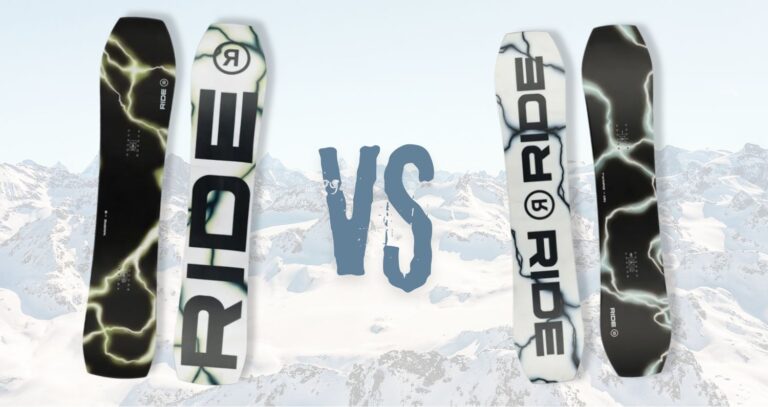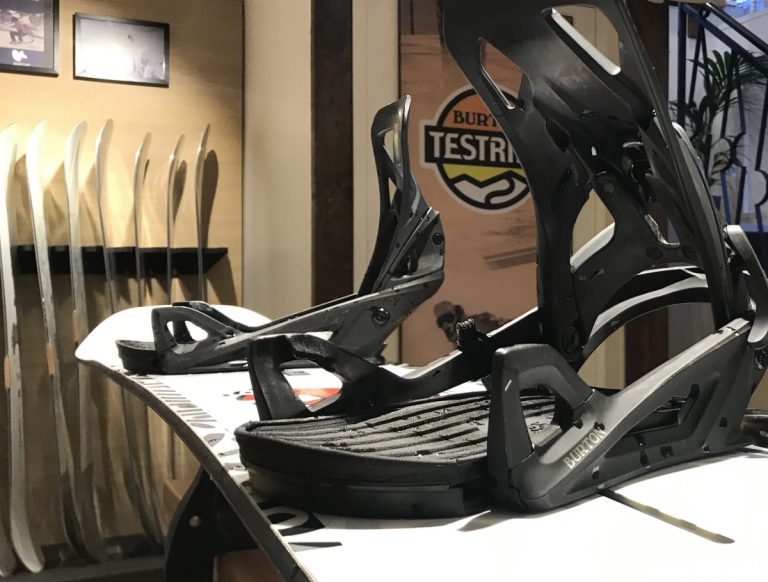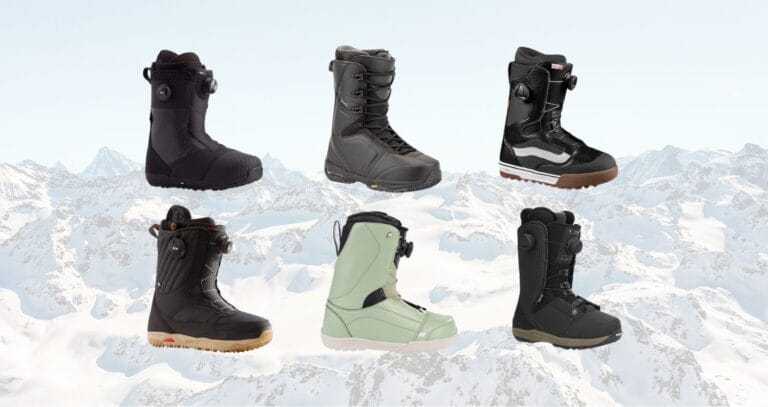Splitboarding is a relatively new form of snowboarding that has been gaining in popularity in recent years. It allows snowboarders to access terrain that they would not be able to reach with traditional snowboarding gear. In this blog post, we will explain what splitboarding is, how it works, and why it has become so popular among snowboarders.
A splitboard snowboard is a board that can be split down the middle to form two skis. This enables you to walk or ‘skin’ up the hill. Once you’ve reached the top you can re-attach the 2 skis back into a snowboard and enjoy the ride down!
4 Essential Parts of a Splitboard
- Splitboard snowboard – This is a board that has been split down the middle lengthways and has a couple of clips to attach the board back together.
- Splitboard snowboard bindings – These bindings can be used as normal snowboard bindings, but also as ski touring bindings that attach to each of the two halves of the board. When in touring mode they are just fixed at the toe allowing you to lift your heel and walk.
- Skins -These are essential for splitboard touring as they provide the grip which enables you to climb up the hill. They can be stuck to the base of each of the two halves of the board when you want to start climbing. The skins have little hairs on them that grip in one direction and lay down smooth in the other. This enables them to grab onto the snow, allowing you to push forward, then when the skis are moved forward, these surfaces flatten out to allow you to glide.
- Collapsable touring poles – Ski poles help you push, and keep your balance on the way up. And can be collapsed down and put in your pack on the way down.
What's the point in Splitboarding?
Splitboarding is the best way to access the backcountry on a snowboard under your own steam. If you can’t get there by ski lift and you don't mind putting in a little effort then backcountry splitboarding is the best way to get to new terrain and untouched powder. In many ski resorts, the powder will be tracked out after a couple of days, but if the temperature is cold enough you can still get amazing snow in the backcountry weeks after a snowfall.
How much work is splitboarding?
Your typical day splitboarding is very different to your typical day riding the resort. When I go splitboarding I normally come back after 3-4 hours pretty exhausted having only ridden for about an hour but with a huge smile on my face!
Looking at my Strava data from last winter, I spend about 80% of time going up and 20% of time riding.
For a lot of riders, the trade-off between time spent climbing up the hill to time spent riding down is not worth it. But for me being out in the mountains, accessing new terrain, and getting away from the crowds. Is totally worth it.
One of the keys to enjoying splitboarding is to make sure that you are fit enough to make it to the top and still have some energy left to enjoy the ride down. For this reason, I would advise starting small, with about 1000 feet of climbing. This will only give you about 10-20 minutes of riding time but will give you a feel for the effort involved and get you used to the equipment.
Splitboarding is definitely a different mindset from normal snowboarding, but for me, some of the best days snowboarding I’ve had have been on my splitboard!
How does a splitboard ride compared to a normal snowboard?
The first thing you’ll notice when you pick up a splitboard is that they are about 30% heavier than a normal board. This is because of the extra hardware in both the board and bindings. The heavier board makes it a little harder to maneuver but the main difference you can feel comes from the extra edge running down the middle of the board.
When you turn the two halves of the board move a little and the edge which joins the two halves will start to poke out a little. Whilst you can notice this on the groomers you will not feel it in the powder which is where you want to be!
My splitboard doesn't ride as well as my go-to all-mountain snowboard, but I really don’t think about this on the ride down.




